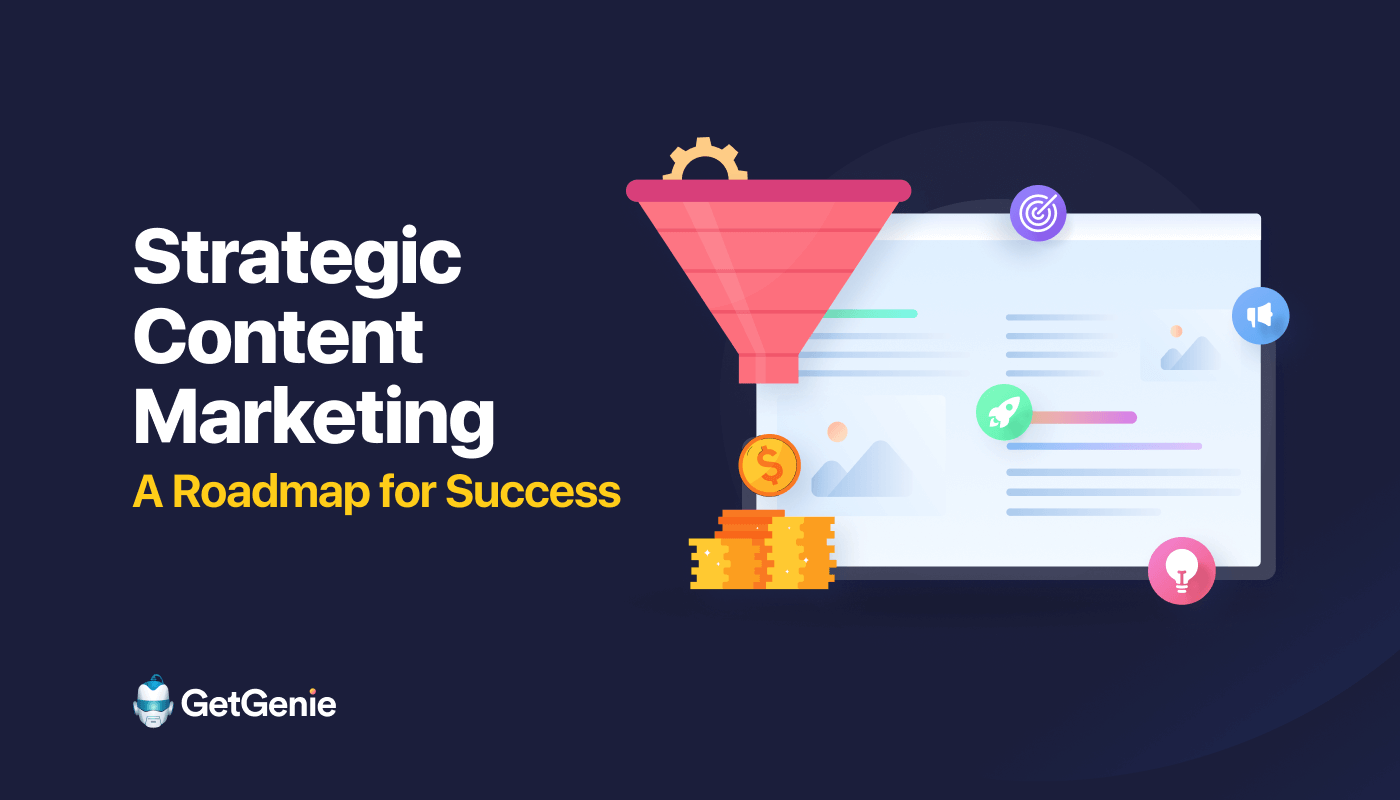Introduction to Content Marketing Goals
Let’s get one thing straight—creating content just for the sake of it doesn’t cut it anymore. The digital world is noisy, competitive, and fast-paced. To stand out, you need a plan. That’s where content marketing goals come into play. These aren’t just buzzwords—they’re your blueprint to attracting, converting, and retaining your audience.
What is Content Marketing?
Content marketing is all about creating and sharing valuable, relevant content to attract and engage your target audience. Think blogs, videos, social media posts, infographics—anything that adds value and solves problems for your audience.
Why Setting Content Marketing Goals is Crucial?
Without clear goals, your content might as well be floating in a black hole. Goals give your content direction. They tell you what you’re aiming for—be it more traffic, better leads, higher conversions, or all of the above. Plus, they keep your team aligned and focused.
Understanding the Foundation of Content Marketing Goals
Aligning Content Goals with Business Objectives
Your content marketing goals should always tie back to your bigger business goals. Want more sales? Your content should guide users down the funnel. Trying to build authority? Focus on educational, trust-building content.
SMART Goals Framework in Content Marketing
Goals should be:
-
Specific (What exactly do you want?)
-
Measurable (Can you track it?)
-
Achievable (Is it realistic?)
-
Relevant (Does it align with your brand?)
-
Time-bound (When should it happen?)
Top Content Marketing Goals to Set in 2025
1. Increase Brand Awareness
If no one knows you exist, your content’s impact is zero. Brand awareness is the foundation of the funnel.
Strategies to Boost Visibility
-
Collaborate with influencers
-
Guest post on reputable websites
-
Run social media campaigns
-
Focus on storytelling and consistent branding
2. Drive Website Traffic
More eyeballs = more opportunities. Driving traffic is one of the most common content goals.
SEO, Blogging & Social Sharing
-
Write SEO-optimized blog posts
-
Share regularly on social media
-
Use internal linking strategies
-
Repurpose content into videos, carousels, or infographics
3. Generate Quality Leads
It’s not just about numbers—it’s about attracting people who care.
Using Lead Magnets and Gated Content
-
Offer eBooks, checklists, or webinars
-
Create landing pages with enticing CTAs
-
Use exit-intent popups to capture emails
4. Improve Customer Engagement
When your audience engages, it means they’re listening.
The Role of Interactive and Personalized Content
-
Create polls, quizzes, and calculators
-
Use personalized email campaigns
-
Engage in comments and respond actively
5. Nurture Leads Through the Funnel
Leads aren’t always ready to buy. You need to guide them gently.
Email Campaigns and Drip Sequences
-
Automate follow-up sequences
-
Send content tailored to where they are in the buyer journey
-
Offer value at every step
6. Increase Conversion Rates
At the end of the day, you want your audience to take action.
Creating High-Converting Content
-
Use testimonials and case studies
-
Write clear, persuasive CTAs
-
Reduce friction in landing pages
7. Boost Customer Retention and Loyalty
Acquiring new customers is costly. Keeping them? Priceless.
The Power of Storytelling & Consistency
-
Send regular newsletters
-
Create loyalty programs
-
Share customer stories
Metrics That Measure Content Marketing Success
You can’t manage what you don’t measure. Track the right metrics to know what’s working.
Engagement Metrics
-
Likes
-
Shares
-
Comments
-
Time on page
Traffic Metrics
-
Total sessions
-
New vs. returning visitors
-
Bounce rate
Conversion Metrics
-
Lead forms submitted
-
Downloads
-
Purchases
Retention Metrics
-
Repeat visits
-
Subscription renewals
-
Customer lifetime value
Creating a Content Strategy Based on Goals
Audience Personas and Content Mapping
Know your audience inside out. Map content to every stage of their journey—from awareness to decision.
Choosing the Right Channels for Distribution
Where does your audience hang out? Focus your energy there—be it Instagram, LinkedIn, YouTube, or email.
Content Calendar for Consistency
Plan ahead. A solid calendar keeps your publishing rhythm smooth and efficient.
A/B Testing and Optimization
Always test headlines, CTAs, and content formats. What works today might not work tomorrow.
Common Mistakes in Setting Content Marketing Goals
Being Too Vague or Broad
“Get more traffic” isn’t a goal. “Increase website traffic by 25% in 3 months” is.
Ignoring Data and Analytics
Flying blind? That’s a no-no. Analytics helps you refine and improve.
Not Reviewing and Adjusting Goals Regularly
Goals aren’t set in stone. Review quarterly. Adjust as needed.
Future Trends in Content Marketing Goals
AI-Driven Personalization
Tools like ChatGPT are making hyper-personalized content a reality. Tailor messages to individual behavior and preferences.
Focus on Ethical and Value-Based Marketing
People care about values. Showcase your commitment to causes, diversity, and sustainability in your content.
Conclusion
Setting clear, measurable content marketing goals isn’t just smart—it’s essential. Whether you’re building brand awareness or optimizing conversions, your goals act as a compass, guiding every blog post, tweet, or video you publish. Start small, stay consistent, and always track your progress. With a solid goal-based strategy, content becomes not just king—but the entire kingdom. Read more adsy.pw/hb3
